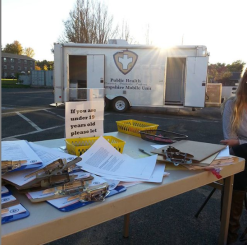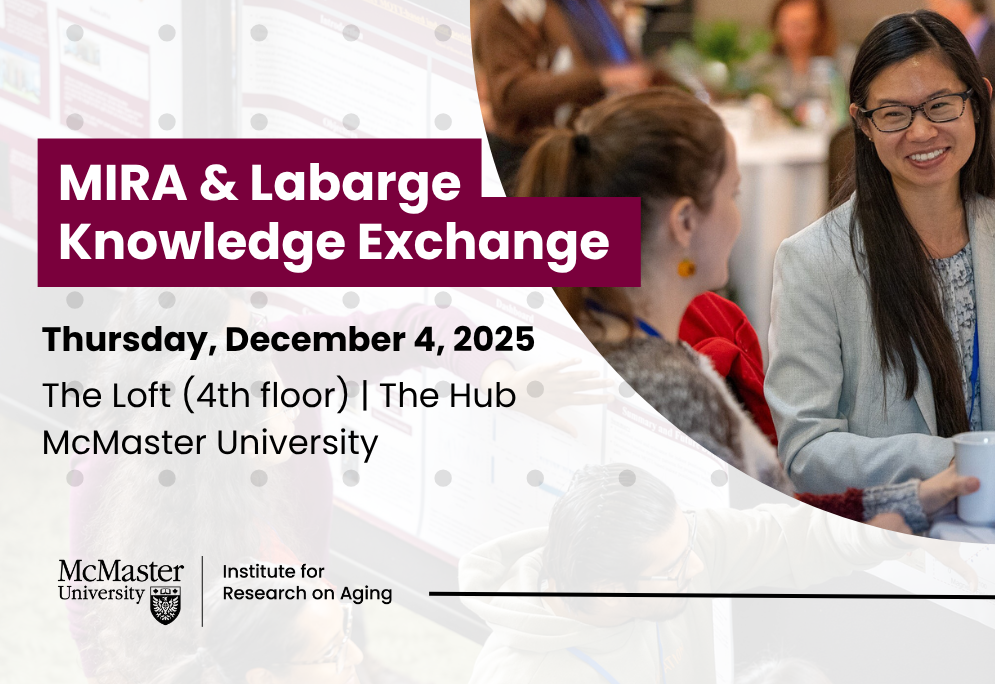
​
Q: What brought you to be part of the MIRA trainee network?
I am a Postdoctoral Fellow in the Department of Economics. My field of work is health economics, focused on studying behavior and risky decisions by using experimental methods. I am currently working on different approaches to study influenza, asthma, diabetes and stress from a behavioral and neuroeconomics point of view. Many of these comorbidities have a direct impact on seniors’ quality of life, morbidity, and mortality, and I bring a social sciences perspective to the MIRA trainee network.
Q: Tell us about the research project you are currently working on.
I am currently working on a field experiment that examines the impact of an

information intervention on seasonal influenza vaccinations in small networks of seniors (In Hamilton, ON). I am building on prior experimental methods which Esther Duflo and Abhijit Banerjee, the 2019 winners of the Economics Nobel Prize have developed to understand how trusted persons in a network can transmit relevant information. The information which I will provide directly tackles misinformation about the flu and the flu vaccine, with the goal of influencing individual decisions to get vaccinated. Extensions of this line of research I am currently working on include interventions to understand parental decisions on vaccinating their children.
Q: How does it relate to the aging population?
Seniors are one of the populations at the highest risk of contracting the flu as well, the highest risk of death and hospitalizations from flu-related complications. The flu is preventable by getting the vaccine every year and increasing flu vaccinations in seniors is essential to build community immunity and to keep seniors healthy, especially those with chronic illnesses or weaker immune systems.
Q: What is the ultimate goal/purpose of this research?
This project on flu vaccinations among seniors has three broad objectives:
1. Understanding how misinformation impacts individual decisions.
2. Examining how information travels through face-to-face social networks (as opposed to social media)
3. Analyzing how targeted health-based interventions can be used to design public policies aimed at improving the health of individuals and the community.
Q: Can this research/knowledge be applied to have a real-world impact?
I hope so! My flu vaccination interventions usually tackle beliefs about the flu as well as misinformation (such as “the flu vaccine gives me the flu”, “I don’t need it because I never got the flu”). The results of my research can be directly applied to the design of public policy programs to increase vaccination rates and tackle vaccine hesitancy.

